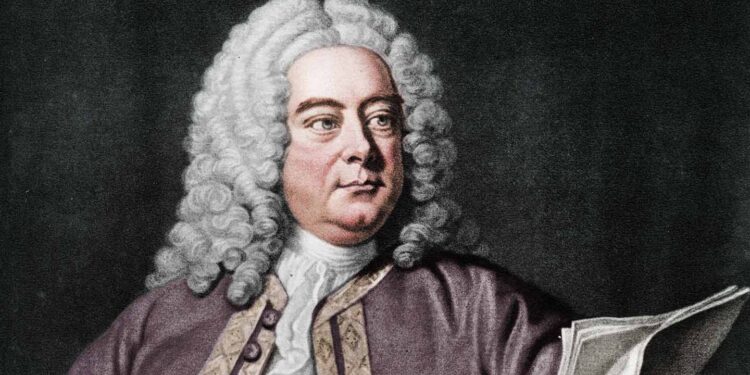George Frideric Händel (1685-1759) was one of the most influential composers of the Baroque era, whose musical legacy continues to resonate centuries after his death. Born in Halle, Germany, he displayed remarkable musical talent from an early age, though his father initially discouraged his musical pursuits in favor of a career in law.
Despite his father’s wishes, Händel’s musical genius could not be suppressed. After studying briefly in Halle and working as an organist, he moved to Hamburg in 1703, where he gained valuable experience composing operas and performing in the opera house orchestra. His career truly began to flourish when he traveled to Italy from 1706 to 1710, where he absorbed the Italian style and composed numerous cantatas and operas.
Händel settled in London in 1712, where he would spend most of his remaining life and achieve his greatest successes. He became a naturalized British citizen in 1727 and established himself as the preeminent composer in England. His compositions during this period included numerous operas, which were initially very successful but later fell out of favor with London audiences.
Perhaps Händel’s most significant contribution to music was his development of the English oratorio. These large-scale works combined dramatic storytelling with religious themes, performed in English rather than Italian. His masterpiece, “Messiah” (1742), remains one of the most performed choral works in history, with its “Hallelujah” chorus recognized worldwide. Other notable oratorios include “Israel in Egypt” and “Judas Maccabaeus.”Baro
Beyond his vocal compositions, Händel wrote numerous instrumental works that showcase his mastery of various forms. His “Water Music” (1717) and “Music for the Royal Fireworks” (1749) remain beloved examples of Baroque orchestral music. His organ concertos, which he often performed during intervals of his oratorio performances, established a new genre.
Händel’s music is characterized by its dramatic power, melodic beauty, and remarkable ability to convey human emotion. He was known for his quick composition pace and ability to adapt and reuse musical material effectively. Despite going blind in his later years, he continued to compose and perform until near the end of his life.
His influence on subsequent composers, including Haydn, Mozart, and Beethoven, was profound. Händel was one of the first composers to achieve international fame during his lifetime, and his music has remained continuously performed since his death. He was buried in Westminster Abbey, an honor reflecting his status as one of Britain’s most celebrated composers, despite his German birth. Today, his works remain central to the classical music repertoire, performed by ensembles worldwide and continuing to move audiences with their power and beauty.
newshub



Recent Comments